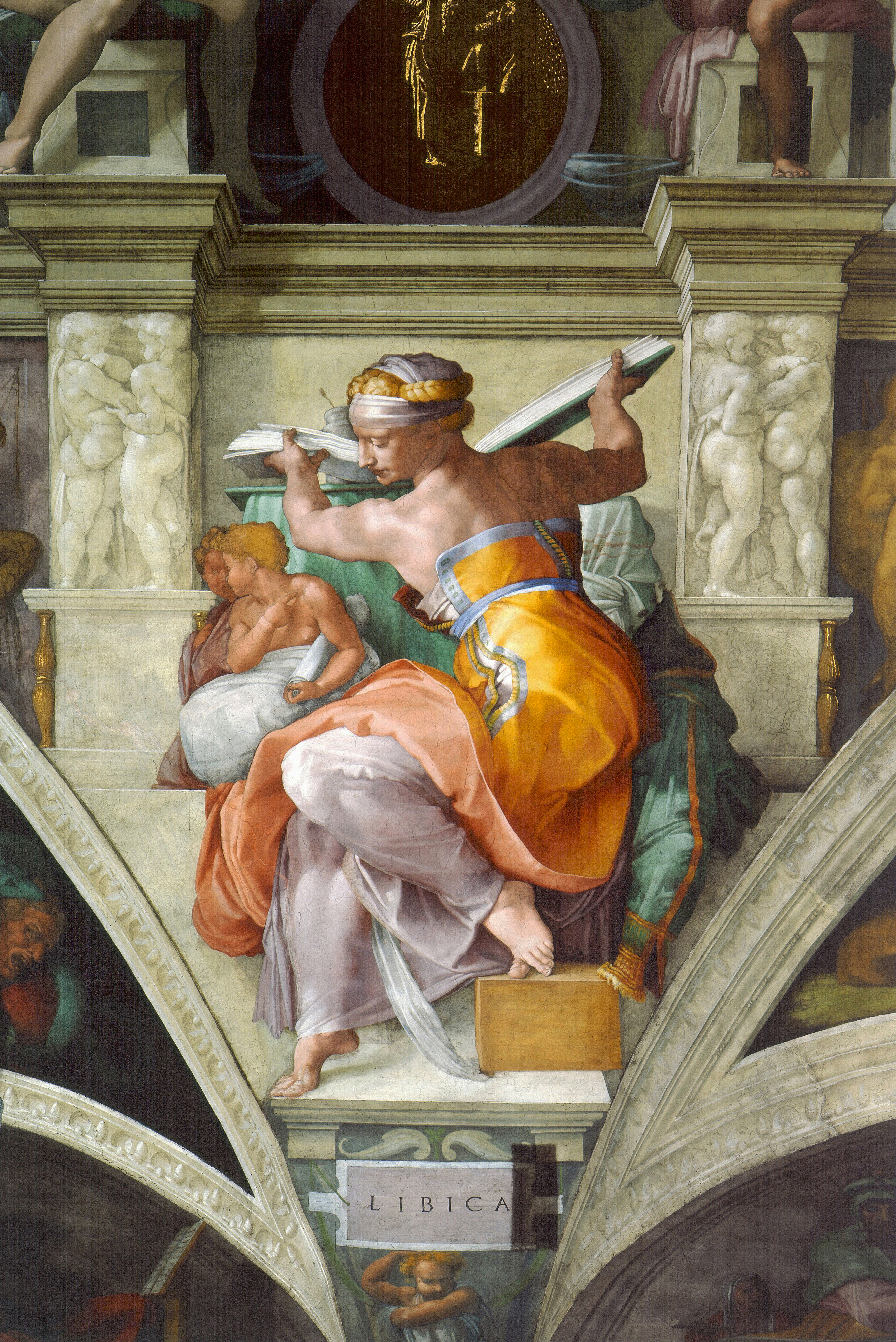 |
| When the Sistine Chapel murals were cleaned some years ago, many complained that the restoration made the images too clear and vivid. They preferred the murkiness of centuries of smoke and oil. |
Teaching a student to write well, one essential piece of advice is to be clear, and avoid qualifiers. The purpose, after all, is to communicate. This is exactly the opposite of what I was told as a grad student, even in the humanities: I used to be criticized for speaking too plainly, for refusing to use them. It got me branded “arrogant.”
Many students struggle to do this, to write clearly, although it seems the simplest possible thing. As Mark Twain put it, “Writing is easy. All you have to do is take out words.”
There are two opposing forces in culture, one trying to make things as clear and simple as possible, and one trying to make things as obscure and difficult as possible. I remember on first reading Milton Friedman, being shocked at how clear and simple his ideas were. Can this be academically legitimate? Can this be right? After all, unlike Keynesianism, it actually makes sense. Yes, breaking windows really does cost money. When you spend money, you no longer have it. The obvious truth had been obscured.
Plato or Descartes are also clear and well-spoken. What a shock to discover, after always being told otherwise, that the best thinkers actually wrote plainly. Yet, in most academic courses, the works of these great thinkers are kept from you, on the claim that they are too difficult, and you are required to read prevaricating commentaries on them instead. Which are far more difficult to understand than the works they are supposedly explaining to you.
How can this be? What is going on here?
The truth is, most of us are in denial. Which means we are in frantic flight from reality. The academic elite—the scribes and Pharisees—are clearly more in denial than most.
But so too even many current poets.
The theme for this year’s National Poetry Month is “joy.”
I don’t think any real poet could have chosen that theme. After all, no prominent poet seems to have written memorably on it. I cannot conceive of Leonard Cohen writing about how happy he is. I cannot imagine T.S. Eliot doing so. William Blake did, it is true. But he followed it with the symbol of the tyger devouring the innocently joyful lamb. Schiller wrote an “Ode to Joy,” which became embarrassingly popular. But he himself disowned it, as “out of contact with reality” and “of no value to either poetry or the world.” Browning seemed to do so with “Pippa Passes,” but later he denied having any idea what the poem meant.
A fraudulent joy is the resting face of all delusion. Happy happy joy joy. Accordingly, it is virtually impossible to write an honest poem about it.
I think of the vacant smiles on the oldest Greek statues: a smiling sphinx about to tear you limb from limb; a smiling soldier about to skewer his enemy through the heart. Perhaps an ironic comment; but chilling. I think of Pogo the Clown, aka John Wayne Gacy.
A student of mine was assigned “coming of age” as his poetic theme. He wrote well of casting off the lines and drifting out to sea. And then, in the final stanza, wrote, “after all, if things go wrong, the reins are still right there by my side.”
A deliberate confusion? But of course, in the metaphor he chose, they are not. Nor are they in real life. You cannot go back to being a child.
When I pointed this out, he froze up. “But that is too sad.”
Denial.
I had to finish the poem for him.
True art must always tell the truth. That is the reason for art. If it does not, it has no purpose, or worse.
This is really the war between good and evil. Those who are committed to good will seek truth, and do everything they can to write or speak or paint clearly. Those who are committed to evil will have things to conceal, and will work hard to be obscure. And to silence those who speak truth.
George Orwell once observed that his real talent was an ability to honestly and unflinchingly face the reality of evil. It is a rare talent.
William Blake insisted that all visual art worthy of the name must have clear lines. He railed against “the Flemish ooze.”
I agree with him. It is immoral. All unnecessary lack of clarity is immoral.
And the greater the general evil in a society, the worse the art.












No comments:
Post a Comment